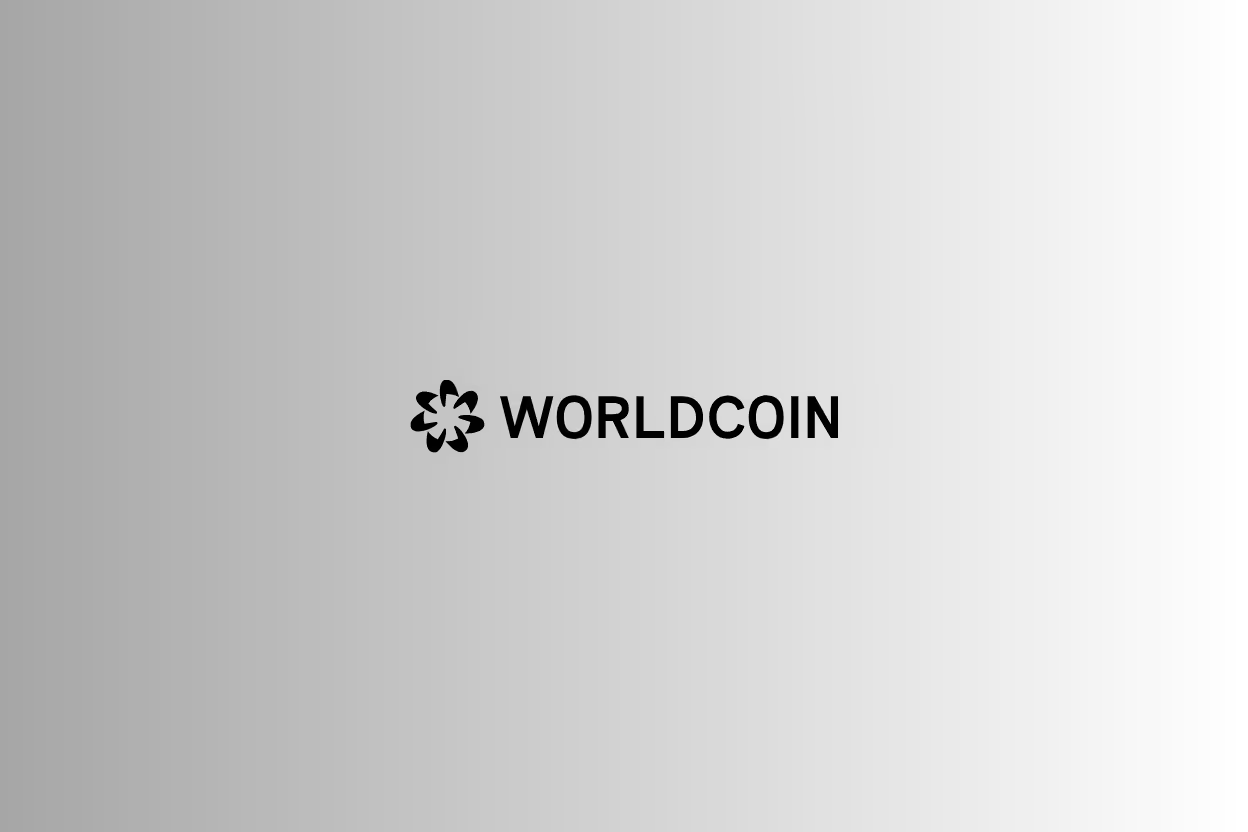Worldcoin is building a global digital identity network with the goal of confirming each user’s unique humanity while protecting their privacy. It uses biometric verification, like iris scans, to create a secure and anonymous proof of identity known as World ID. This foundation supports more than identity—it paves the way for a universal basic income system using its native cryptocurrency.
This project matters to anyone involved in crypto, blockchain, or Web3 because it tackles major challenges around trust, privacy, and financial inclusion on a worldwide scale. Investors and founders alike should follow how Worldcoin plans to combine identity and income in a privacy-focused, blockchain-based system that could change access to digital finance and governance.
Understanding Worldcoin's Core Technology and Identity System
Worldcoin’s vision relies on a technology stack that combines advanced biometrics, strong cryptography, and scalable blockchain infrastructure. The goal is to create a secure, global digital identity while protecting user privacy and enabling new economic opportunities. Let’s break down the main components powering this system and how they work together:
Orb Device and Iris Scanning Technology
At the heart of Worldcoin’s identity verification is the Orb—a spherical biometric scanner designed to capture high-resolution images of a person’s iris within seconds. Unlike fingerprints or facial recognition, iris patterns are extremely complex and stable over a lifetime, making them ideal for uniquely identifying millions, even billions, of people.
Here’s why the Orb and iris scanning stand out:
- Hardware and Software: The Orb uses multiple cameras and infrared lighting to generate multispectral images of the iris. AI-driven neural networks analyze these images instantly, converting them into a compact digital representation known as an iris code.
- Accuracy and Security: Iris scanning offers an exceptionally low false match rate—better than 1 in 40 trillion—making it far more accurate than other biometrics. This accuracy helps prevent fraud and duplicate registrations.
- Privacy by Design: The device processes biometric data locally, creating cryptographic hashes (iris codes) without storing raw images. This limits exposure to sensitive data and prevents any reconstruction of the original iris.
This hardware-software combination lets Worldcoin create a reliable proof-of-humanity while minimizing the usual risks tied to biometric systems.
Zero-Knowledge Proofs and Privacy Preservation
Protecting user privacy is a fundamental part of Worldcoin’s identity approach. It uses zero-knowledge proofs (ZKPs)—a cryptographic technique that verifies information without revealing the information itself.
Here’s how Worldcoin applies this:
- Encrypted Biometrics: Iris codes generated by the Orb remain encrypted on the device. Users never hand over their raw biometric data. This ensures that even if the device or databases are compromised, no one can access or misuse the original identifying data.
- Unlinkable Identity Proofs: When verifying identity on applications or platforms, ZKPs enable proving you are a unique human without revealing your actual biometric information. This keeps your activity across services anonymous and unlinkable.
- Decentralized Verification: Cryptographic protocols prevent any third party from tracking or profiling users based on their biometric identity, maintaining control in the hands of the user.
This privacy-focused design answers critical questions about data security while maintaining a high trust level for users and networks relying on World ID.
Blockchain Infrastructure and Scalability
Worldcoin’s identity and payment system runs on robust blockchain technology designed to handle billions of users securely and efficiently.
Key elements include:
- Ethereum and Polygon: Worldcoin uses the Ethereum blockchain for its decentralized token system (WLD), offering transparency and security. To improve transaction speed and reduce costs, it integrates Polygon, a layer 2 scaling solution compatible with Ethereum.
- Rollup Technologies: By employing zk-rollups—techniques that bundle many transactions off-chain before submitting a single proof on-chain—Worldcoin achieves high throughput and fast finality without congesting the base Ethereum layer.
- Security Measures: With cryptographic proofs anchored on chain, identity verification remains tamper-proof and auditable. Protocols govern aspects like token issuance, identity revocation, and dispute resolution with decentralized governance.
- Scalability for Billions: The architecture supports mass onboarding by batching verification steps and distributing workload across the network. This setup aims to maintain low latency and prevent bottlenecks even as global participation grows.
By combining proven blockchain standards and innovative scaling strategies, Worldcoin lays the groundwork for a worldwide digital identity and income system built to last.
Together, the Orb’s precise iris scanning, zero-knowledge privacy mechanisms, and a versatile blockchain infrastructure form a tightly integrated system. They enable Worldcoin to deliver its promise of a universal identity—one that’s secure, private, and ready for a new era of global financial inclusion.
Worldcoin’s Approach to Universal Basic Income (UBI)
Worldcoin combines its digital identity verification with an economic incentive system aimed at distributing wealth globally through a form of Universal Basic Income (UBI). This section explores how Worldcoin’s native token, WLD, shapes participation and referral incentives across its network, and how its UBI model targets financial inclusion for those often excluded from traditional systems.
The WLD Token and Incentivization Model
At the center of Worldcoin’s economic layer is the WLD token, an ERC-20 cryptocurrency with a fixed total supply capped at 10 billion tokens. This fixed supply means WLD is
Benefits and Opportunities for Blockchain and Web3 Founders
Worldcoin offers more than just a universal identity and income protocol. It opens up fresh paths for blockchain and Web3 founders to build more secure, transparent, and user-focused products. By proving unique human identities at scale with cryptographic privacy, it solves persistent trust and verification problems across platforms. This creates new possibilities in authentication, governance, and finance.
Enabling Secure, Bot-Resistant User Authentication
One of the most frustrating challenges online is distinguishing real users from bots. Bots can threaten platform security, skew user statistics, and manipulate services. Worldcoin’s identity system, built on iris scanning and zero-knowledge proofs, provides a reliable way to verify human uniqueness without exposing personal data.
Platforms integrating World ID can:
- Prevent bot attacks by allowing sign-ups or actions only from verified unique humans.
- Build stronger communities founded on trust and authentic interaction.
- Reduce fraud and spam across messaging, voting, or transaction systems.
- Simplify onboarding by letting users authenticate seamlessly across multiple services with one privacy-safe identity.
By adopting Worldcoin’s identity, developers can significantly improve the quality of user bases while respecting privacy. This approach helps platforms focus on real engagement instead of guarding against fake accounts.
Enhancing Governance and Transparent Voting Systems
Decentralized governance is a cornerstone of Web3, yet ensuring fairness in voting remains complex. One user, one vote is tough to guarantee when fake or duplicate accounts exist. Worldcoin’s unique human proof can link voting rights directly to verified identities, reducing risks of Sybil attacks and vote manipulation.
This paves the way for:
- Token-based voting where voting power is distributed fairly among verified participants.
- Transparent governance processes where each vote can be audited but individual privacy stays intact.
- Effective DAOs that attract broader participation by building trust in the system.
- Global inclusion since the identity system doesn't rely on country-issued documents.
Projects can launch governance models that are not only decentralized but also fair and auditable, addressing one of the biggest weaknesses in existing setups. Founders can create governance structures that inspire confidence and long-term involvement.
Integrating Universal Identity with DeFi and Digital Payments
Identity verification and compliance are significant bottlenecks in decentralized finance and crypto payments. Worldcoin’s identity stack offers a way to onboard users globally, instantly verifying uniqueness without compromising privacy.
This unlocks opportunities for:
- New DeFi products that require real human proof to limit fraud or enforce participation limits.
- Compliant payments that meet Know Your Customer (KYC) requirements with privacy tools, easing regulatory acceptance.
- Cross-platform wallet management where a user’s World ID grants access to multiple financial services.
- Innovative incentive models using the WLD token alongside identity verification to reward genuine user engagement.
Investors and developers can tap into Worldcoin to build practical solutions blending universal identity, privacy, and financial utility. This is especially important as regulators push for stronger identity measures without killing innovation.
The potential of Worldcoin stretches across the foundational layers of Web3, offering founders and investors ways to build products rooted in trust and fairness. Embracing a universal, privacy-respecting human ID can be the key to reducing fraud, improving governance, and scaling DeFi services globally. What new applications might you create when identity is no longer a barrier but a built-in asset?
Challenges, Ethical Concerns, and Future Outlook
Worldcoin offers an ambitious vision to build a global identity system paired with universal income, but it faces a complex set of challenges. Biometric data and ambitious scaling goals raise tough questions about privacy, regulatory compliance, ethics, and technical feasibility. Confronting these issues openly is essential to understanding how Worldcoin could unfold and what impact it might have on the broader Web3 space.
Privacy and Consent in Biometric Data Collection
Collecting iris scans to prove unique human identity is a bold move—but also one that raises deep privacy concerns. Biometric data is fundamentally sensitive because it’s permanent and uniquely tied to an individual. If misused or leaked, it cannot be reset like a password.
Worldcoin takes several steps to safeguard privacy and secure informed consent:
- Local Data Processing: Biometric data is processed on the Orb device itself. Raw iris images are never stored or transmitted.
- Hashed Identifiers: The system converts iris images into encrypted "iris codes" which can’t be reversed to reconstruct the original biometric.
- No Raw Data Storage: Worldcoin says biometric data is deleted immediately after verification, limiting risk of misuse.
- User Consent: Participation is voluntary, with users informed about how their biometric data is collected and processed.
Still, critics worry about informed consent in practice. In regions with low digital literacy or economic hardships, users may not fully understand the implications. Questions remain about how well Worldcoin enforces data deletion and protects against hacking. How does the project handle edge cases like claims of identity theft or misuse? Transparency and ongoing audits will be key for building trust.
Regulatory Landscape and Compliance Challenges
Worldcoin operates across many countries, each with different rules on biometric data and privacy. This patchwork regulatory environment leads to constant compliance challenges:
- Suspensions in Key Markets: Countries like Germany, Spain, and Indonesia paused Worldcoin’s iris scanning activities over data privacy law concerns such as GDPR violations.
- Legal Scrutiny: Authorities question the adequacy of Worldcoin’s consent processes, data security measures, and transparency.
- Anti-Bribery and Ethics: Reports exist of payments to local officials or intermediaries, raising ethical red flags about fair recruitment and potential exploitation.
In response, Worldcoin is pushing toward more transparency and decentralized governance to align with evolving legal frameworks. By open-sourcing code and engaging with regulators, it attempts to build credibility. However, how well it adapts remains uncertain. The project’s future depends on balancing rapid global rollout with respect for local privacy laws and ethical standards. Can such a global identity system ever fully satisfy diverse regulatory demands?
Scalability and Decentralization Roadmap
Scaling Worldcoin’s identity system to billions of people is a massive technical and social challenge. Centralized data collection points pose security and privacy risks, so decentralization is a priority. Here’s how Worldcoin plans to address it:
- Decentralized Orbs and Data Verification: The Orb devices are distributed widely, reducing single points of failure. Biometric input and identity proofs move toward decentralized validation on-chain.
- Cryptographic Innovations: Zero-knowledge proofs continue to enhance privacy while allowing secure identity verification without exposing biometric data.
- Community-Driven Governance: Transitioning control to a decentralized autonomous organization (DAO) can democratize rules around identity issuance, revocation, and usage.
- Layer 2 Scaling: Using zk-rollup methods on Ethereum and Polygon helps handle high transaction volume at lower costs and faster speeds.
This roadmap aims to protect user data, maintain security, and allow seamless onboarding across diverse geographies. Yet, hitting true decentralization without sacrificing performance or user experience will take time. Also, the token economics and governance structures must evolve to reliably support the global system’s integrity.
Worldcoin’s journey involves navigating sensitive ethical issues, complex legal environments, and immense scaling demands. Its ambition to unify identity and income globally won’t succeed without careful, transparent management of these challenges. For Web3 founders and investors, it raises important lessons on where privacy, technology, and regulation intersect in the race to build new global digital economies.
Conclusion
Worldcoin’s unified vision of universal identity and universal income brings both promise and responsibility. By combining advanced iris biometrics with strong cryptographic protections, the project sets out to help billions access secure digital identity and financial inclusion without giving up privacy. The careful balance between innovation, security, and ethics will define how Worldcoin is received across the blockchain and Web3 ecosystem.
If successful, this model could reshape the way people prove their identity, receive fair compensation, and participate in digital economies worldwide. Does this approach truly address issues of trust, privacy, and global access—or do new ethical risks emerge as technology scales? Founders and investors have much to consider as they assess how Worldcoin evolves and whether it fits their own missions.
Thank you for reading. Join the discussion, share your insights, and help shape the future direction of universal identity and income in the decentralized era.






